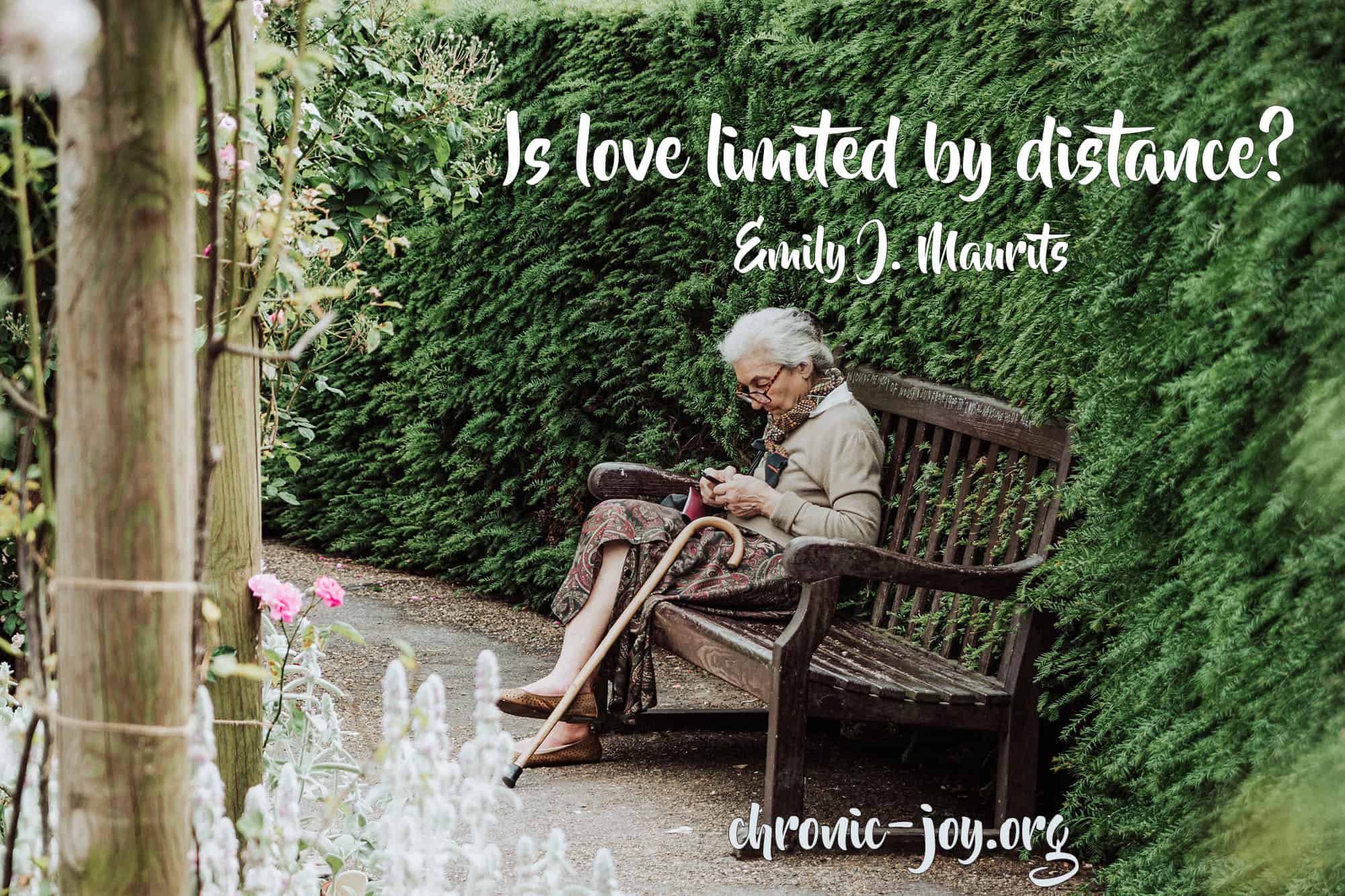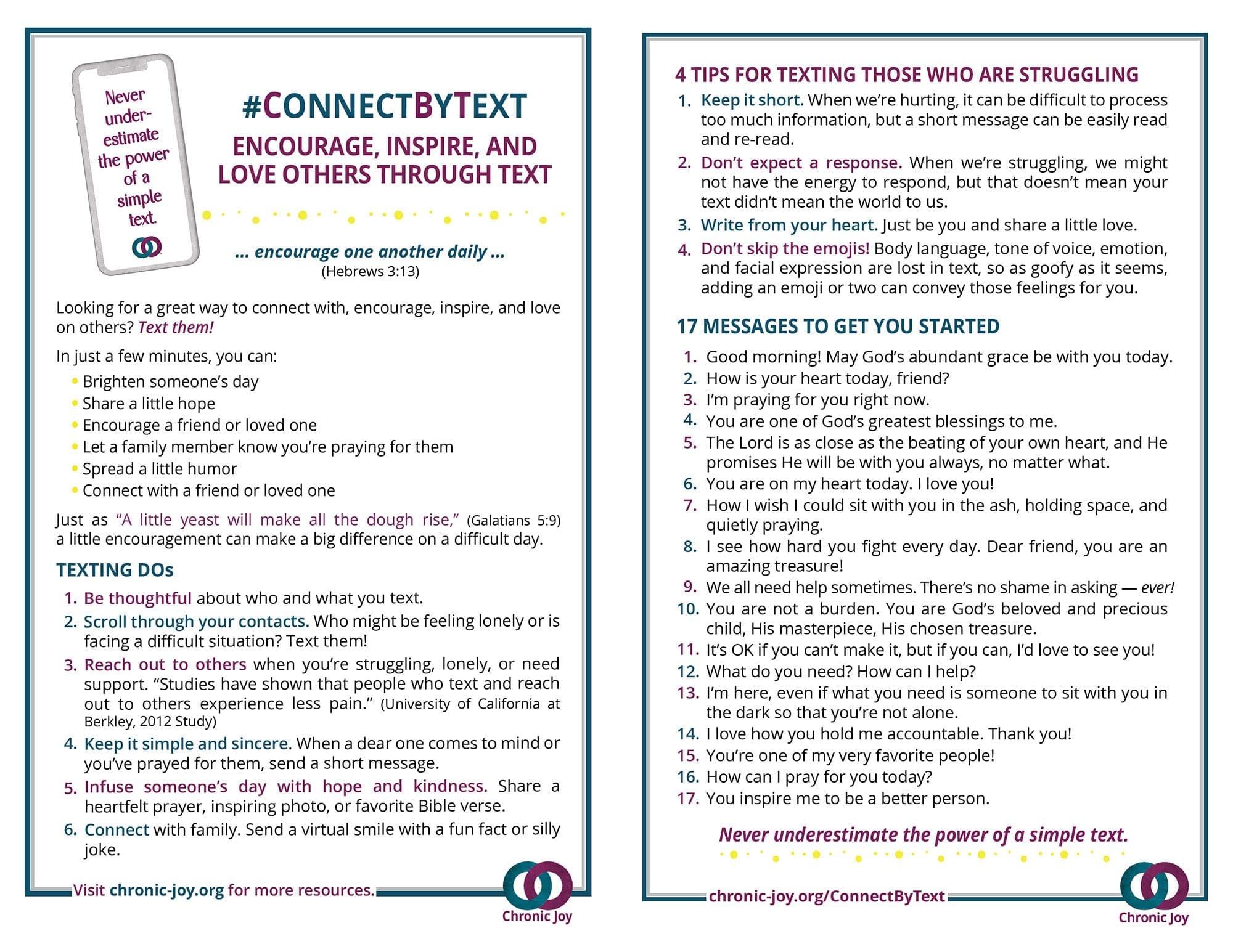
“Is love limited by distance?” Emily J. Maurits
LONG-DISTANCE WATCHING
(This is Part 1 of a two-part series focused on “Watching from a distance.”)
What is long-distance watching? Perhaps we have always lived far away from our loved ones and want to know if we are a Watcher. Perhaps we used to co-reside with them, but due to circumstances or choice, we have moved a distance away and are struggling. Maybe we’d prefer to live elsewhere and wonder what that would look like, or the opportunity has arisen for us to move closer and we’re not sure whether it would be a wise move.
These questions are complex and important.
How do we Watch when we live far away from our loved ones? Is it possible?
THE REALITY IS…
First, we must ask ourselves whether it is possible to Watch from a distance. Is Watching limited by geography?
Our definition of Watching is centered around relationship: we are individuals who love someone who is chronically suffering, and to Watch is to love.
DOES LONG-DISTANCE WATCHING LIMIT LOVE?
Does distance limit love?
A resounding “No!” should be our first response. Yet, distance does shape, mold, and inflame love. Distance sometimes makes the heart grow fonder, but I suspect it does the opposite in many situations.
LONG-DISTANCE WATCHING CAN BE DIFFICULT
Maintaining a close relationship with friends we don’t see regularly isn’t easy. That’s why our social circles change as we move through life from school to study to work to family and everything in between.
When distance imposes a barrier between us and our loved ones, we must ask ourselves some serious questions. After all, we are given the choice to Watch in this unusual circumstance.
- Is it logistically possible for us to be a close part of their life?
- Do they have other Watchers, people closer to them who love and care for them?
- Is it appropriate for us to step back?
Of course, in many situations, these questions will be inappropriate. Often, our loved one is part of our family or a very close friend — and we will continue to Watch. We must do so, and we would not have it any other way. Yet, Watching remotely has its own difficulties.
IN LONG-DISTANCE WATCHING, WE CAN’T PROVIDE PHYSICAL HELP
Where perhaps we once could clean their kitchen, make them a cup of tea, give them a lift, or cook a meal, we now find our hands tied. Parameters beyond our immediate control prevent us from doing what we once could.
This is extremely frustrating for those who express love primarily through actions. It is not merely the gift of service which is denied us — so is physical affection. We can no longer hug, kiss, clap on the back, or sit in silence with our loved ones. Tears cannot mingle over the phone.
This can be excruciating.
If we enjoy giving physical gifts of food or tiny luxuries, this, too, is more difficult. Due to the distance between us, we may be unable to transport perishables or otherwise express our solidarity.
LONG-DISTANCE WATCHING CHANGES THE PARADIGM
What should we do?
We need to accept the inevitable. Watching from a distance changes the paradigm. Things will be different.
We cannot physically help our loved ones anymore, but we can still be a blessing. We can be a sensitive breath of fresh air.
Our situation has changed, but theirs has not and perhaps never will. Our knowledge of the world and our circle of experience and contacts has widened – even if we have only moved half an hour away.
LONG-DISTANCE WATCHERS CAN SHARE STORIES
Our wealth of stories has increased. We have collected new jokes and new outlooks. As we return to our old lives (be it by a phone call or a visit), we bring some of our new life with us.
This can be refreshing. It can widen our loved one’s perspective, provide a gentle distraction, and even help them live vicariously as they hear about our new experiences.
This is not to say our loved one is a project or someone to be “cultured.” We have simply become the means of something natural and incidental.
The stories and interactions of a different life can build up daily experiences. Let’s be aware of this and the gentle relief it can bring.
Perhaps sickness has narrowed and depressed our loved one’s outlook. Perhaps not. Either way, let us pray God will use our presence to bless them.
LONG-DISTANCE WATCHING MAKES VISITING DIFFICULT
We may not be able to physically impact the lives of our loved ones on a regular basis — but we can visit. The physical act of traveling, as tiring as it may be for us, is a gift to them.
It may be difficult to arrange visits. Schedules must be wrangled, money spent, energy summoned — sometimes, it might not even seem worth it when we weigh the travel time against time with our loved one.
Yet when we do choose to visit, we bless both our loved ones and ourselves. After all, nothing trumps a real hug.
First published at calledtowatch.com. Published with permission.


Emily J. Maurits
Chronic Joy® Contributing Writer
After working for several years in public health, Emily is studying theology. She believes we are all called to love suffering people because it is what Jesus did. She is passionate about equipping and encouraging others to do just that and founded calledtowatch.com for the family and friends of those with chronic illness. As well as uncovering God's presence in the chaos of life, she enjoys reading, running, and writing. Check out her memoir Two Sisters & a Brain Tumour.

#ConnectByText Ideas
Looking for a way to connect with, encourage, inspire, and love on others? Text them! Tips for Texting: Keep it short. Don’t expect a response. Write from your heart.

Recent Comments